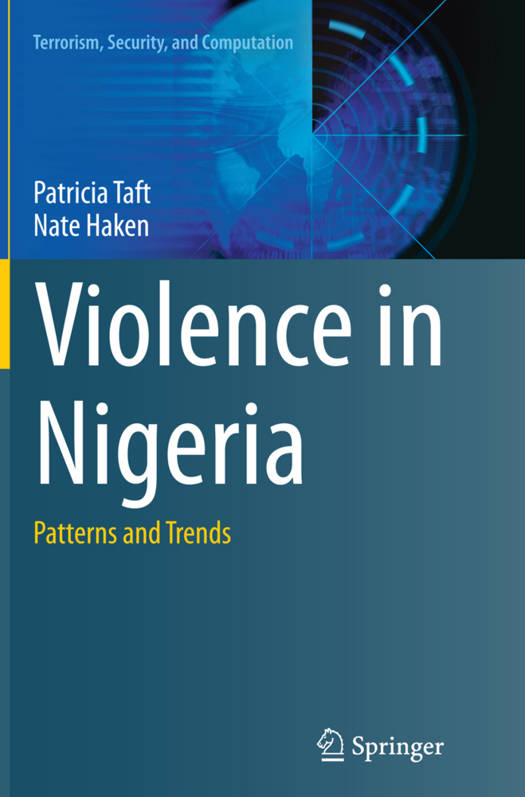
- Afhalen na 1 uur in een winkel met voorraad
- Gratis thuislevering in België vanaf € 30
- Ruim aanbod met 7 miljoen producten
- Afhalen na 1 uur in een winkel met voorraad
- Gratis thuislevering in België vanaf € 30
- Ruim aanbod met 7 miljoen producten
Zoeken
Omschrijving
This book takes a quantitative look at ICT-generated event data to highlight current trends and issues in Nigeria at the local, state and national levels. Without emphasizing a specific policy or agenda, it provides context and perspective on the relative spatial-temporal distribution of conflict factors in Nigeria. The analysis of violence at state and local levels reveals a fractal pattern of overlapping ecosystems of conflict risk that must be understood for effective, conflict-sensitive approaches to development and direct conflict mitigation efforts. Moving beyond analyses that use a broad religious, ethnic or historical lens, this book focuses on the country's 774 local government areas and incorporates over 10,000 incidents coded by location, date and indicator to identify patterns in conflict risk between 2009 and 2013. It is the first book to track conflict in Nigeria during this period, which covers the Amnesty Agreement in the Niger Delta and the birth of Boko Haram in the North. It also includes conflict risk heat maps of each state and trend-lines of violence. The authors conclude with a discussion of the nuanced factors that lead to escalating violence, such as resource competition and trends in terrorism during this critical point in Nigeria's history. Violence in Nigeria is designed as a reference for researchers and practitioners working in security, peacebuilding and development, including policy makers, intelligence experts, diplomats, national defense and homeland security experts. Advanced-level students studying public policy, international relations or computer science will also find this book useful as a secondary textbook or reference.
Specificaties
Betrokkenen
- Auteur(s):
- Uitgeverij:
Inhoud
- Aantal bladzijden:
- 136
- Taal:
- Engels
- Reeks:
Eigenschappen
- Productcode (EAN):
- 9783319360195
- Verschijningsdatum:
- 6/10/2016
- Uitvoering:
- Paperback
- Formaat:
- Trade paperback (VS)
- Afmetingen:
- 156 mm x 234 mm
- Gewicht:
- 222 g

Alleen bij Standaard Boekhandel
+ 105 punten op je klantenkaart van Standaard Boekhandel
Beoordelingen
We publiceren alleen reviews die voldoen aan de voorwaarden voor reviews. Bekijk onze voorwaarden voor reviews.











